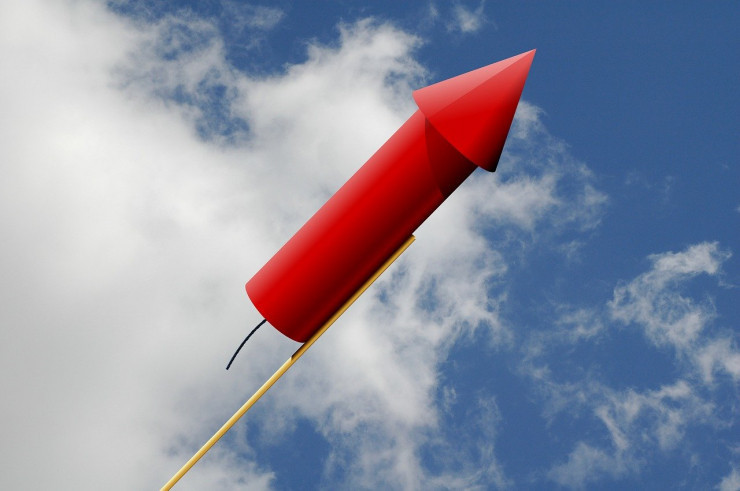Netherlands: Update on gambling tax increase causes more excitement in the industry despite concessions

Various changes in favour of player protection and government revenue have been underway in the Dutch gambling market for some time, hanging over the industry like swords of Damocles. New advertising guidelines and stricter deposit limits are on the horizon. Finally, the gambling tax is to be raised to more than 37 per cent. In view of the very good channelling rate in Holland, the industry is becoming increasingly concerned. The tax increase in particular is seen by many as a kind of nail in the coffin for the successes to date. Even the concession of a gradual adjustment is of little help.
The increase in gambling tax in the Netherlands met with strong reactions as soon as it was announced. It has now been decided to gradually implement the adjustment to a whopping 37.8 per cent by January 2026, but this is hardly reassuring for the industry.
The tax increase is therefore causing a great deal of uncertainty and resentment. What's more, it comes despite warnings from a study commissioned by the government. This had clearly pointed out that such a step could jeopardise the position of licensed providers, which in turn undermines the long-term goals of player and consumer protection. Industry experts assume that a sharp increase in the tax burden will jeopardise the business model of many licensed providers. The state appears to be willing to accept that the regulatory successes to date will be massively jeopardised.
On 1 January 2025, the gambling tax in the Netherlands will rise to 34.2 percent and then further to 37.8 percent in 2026
The staggered increase in gambling tax, which was initially set from 30.5 to 34.2 percent from 1 January 2025, is intended to provide the Dutch gambling industry with a transitional phase to adjust to the new burden. This decision, which was presented to the Dutch parliament in mid-September, is part of a comprehensive plan to increase state revenue, while at the same time mitigating any excessively negative effects on regulated providers.
Nevertheless, the leeway for many operators is narrow: a gross gaming revenue tax of ultimately 37.8 per cent could mean significant financial cuts even for the big players. From 2026, all providers will have to live and operate with these new levies - from land-based casinos and gaming arcades to lotteries and online gambling. Incidentally, Germany recorded a massive slump in tax revenue from virtual slot machines in May.
Industry representatives warn that this staggered approach is not enough to protect companies from significant burdens. In particular, small and medium-sized operators, such as those found in brick-and-mortar gaming arcades or bookmakers, could face difficulties as a result of the introduction of the tax increase. Margins, which may already be tight, will continue to shrink.
Industry experts and even a government-commissioned study have warned of the consequences of the tax increase
The Dutch industry association NOGA (Netherlands Online Gambling Association), which had already expressed a very critical opinion when the tax increase was first announced, was also extremely concerned when the decision was made at the end of September. It described the planned increase as a serious threat to the entire gambling industry.
- NOGA: According to NOGA, the tax increase would ‘lead to a further erosion of the regulated offer’ and ultimately undermine the objectives of Dutch regulation. The likely increase in the use of illegal options, which are associated with higher risks for players, is particularly worrying. NOGA warned that this development would massively jeopardise the cornerstones of the country's gambling policy - player protection and the prevention of fraud and gambling addiction. The association called on the government to seek dialogue with the industry in order to jointly develop solutions that could cushion the impact.
- Study by Atlas Research: These concerns are underpinned by a study by the renowned research institute Atlas Research, which was presented as part of the draft budget. According to the report, there is a risk that many online providers will have to leave the Dutch market as they may not be able to bear the increased tax burden. ‘Operators will take measures to avoid going into the red,’ the analysis states. The result could once again be an increasing shift of players to the black market, it concludes. The study makes it clear that passing on the higher costs to the players will inevitably lead to a weakening of regulated competition.
- Holland Casino: The state-run gambling group Holland Casino is also massively affected by the tax increase. Petra de Ruiter, CEO of the company, called the increase ‘irresponsible’ and explained that Holland Casino had already recorded a loss of 3.5 million euros in 2024 after the tax was raised by just 1 per cent. With a total tax rate of 37.8 per cent, the effective tax burden will amount to around 50 per cent of turnover, making it almost impossible to operate profitably. De Ruiter warned that Holland Casino could be forced to close branches or give up its online business if nothing happens. ‘Unlike supermarkets, we can't pass on price increases so easily,’ she explained. Measures such as reducing winnings for players or more aggressive customer acquisition are unacceptable and contradict the objectives of the state's gambling policy.
Conclusion
Image source: https://pixabay.com/illustrations/rocket-firework-red-rise-fly-979271/

0 Comments to: Netherlands: Update on gambling tax increase causes more excitement in the industry despite concessions
Our community thrives on your feedback - so let us know what you think!
Would you like to write comments on GambleJoe yourself? Then just create a GambleJoe User Account.